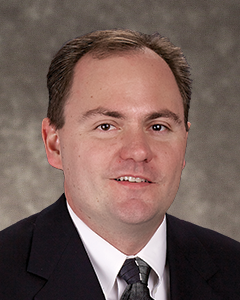Sleep Medicine
Self-tests for Sleep Disorders
A doctor's referral is required for a sleep study.
A poor night’s sleep is more than an inconvenience — it also can affect your overall health. If you often have trouble sleeping, it’s possible you have a sleep disorder. Left untreated, sleep disorders like insomnia can cause more serious conditions, such as diabetes, heart failure, obesity, anxiety and depression.
Your sleep is our priority at North Kansas City Hospital & Meritas Health. Work with sleep specialists to take a sleep study, treat a sleep disorder and discover ways to get the rest you need.
Sleep Disorders We Treat
A sleep disorder disrupts how well and how long you sleep. Find treatments for sleep disorders at our NKCH Diagnostic Sleep Center, such as:
- All types of sleep apnea – A serious medical condition in which your breathing becomes very shallow or stops and restarts many times while you sleep
- Insomnia – Trouble getting to sleep and/or staying asleep
- Hypersomnia – Extreme sleepiness during the day even when you get enough sleep
- Narcolepsy – Being overly sleepy during the day and falling asleep abruptly
- REM behavior disorder – When you act out your dreams during sleep without being aware
- Circadian rhythm disorder – When your body’s internal clock confuses when to be awake and when to be asleep
- Periodic limb movement disorder – Restless leg syndrome that causes the repeated movement of legs during sleep
- Parasomnias – When you seem to be alert but are only partly awake (examples include sleep walking, sleep terrors, sleep talking and sleep paralysis)
Diagnostic Sleep Studies Center
When you need help sleeping, turn to the NKCH Diagnostic Sleep Center — right here in the Northland. You’ll partner with board-certified sleep doctors and expert technologists to take a sleep study. Sleep studies are a painless, effective way to diagnose sleep disorders.
The sleep center at 8640 North Green Hills Road is open five days and seven nights each week.
Sleep studies happen at our outpatient center. You work with registered polysomnographic technologists, who are trained in doing sleep studies. We set up a study designed for you and answer any questions.
During the study, the technologists attach special electrodes to your head, chest and legs. The electrodes monitor your brain activity, heart rate, airflow and more — all while you’re asleep.
After the test, your doctor receives the results of your sleep study. They will discuss treatment options with you, if needed. If you haven’t received results after two weeks, please contact the doctor who ordered the sleep study. You also can view results in the myhealth Patient Portal.
You won’t receive medication or sleeping aides for the sleep test. That means how you travel to and from your sleep study is the same as how you would get to a routine doctor’s appointment.
Before your sleep test, we’ll schedule you for a pre-sleep study phone call to talk about your sleep schedule.
Plan to spend at least eight hours with us for an in-lab sleep study (overnight for night sleepers and daytime for night shift workers). This time include setup.
You’ll have a private room with a full-size bed, nightstand, Wi-Fi and television. There’s also a full bathroom in the hallway.
If your doctor suspects that you have obstructive sleep apnea, they may have you complete a sleep apnea test at home. You can expect these steps:
- Schedule a 30-minute appointment at our Sleep Center. We go over a sleep history questionnaire and show you how to use the sleep test equipment.
- Wear the sleep test equipment at home while you sleep.
- Return the sleep test equipment to us the next business day.
- Discuss the results of the study with your doctor, along with treatment options, if needed. If you haven’t received results after two weeks, please contact the doctor who ordered the sleep study. You also can view results in the myhealth Patient Portal..
Note that any sleep tests you do at home may require a follow-up study at the Sleep Center. Home sleep apnea tests can’t diagnose or rule out any other type of sleep disorders (except obstructive sleep apnea) or qualify you for oxygen.
You must have a doctor’s referral for an in-lab sleep study or home sleep apnea test. Insurance companies require a face-to-face office visit or telemedicine visit with your doctor first. Your doctor can’t order a sleep test based on a request by phone or the myhealth Patient Portal.
Call 816.691.5096 for more information, or for help with a referral.
Better Sleep Hygiene
Some sleep problems require medical treatment. You may be able to resolve other issues with better sleep hygiene. Try these sleep tips:
- Avoid drinking alcohol at least two hours before bedtime.
- Exercise every day, but not within a few hours of bedtime.
- Keep your bedtime and wake time consistent each day.
- Meditate before bedtime.
- Put away electronics at least one hour before bedtime.
- Skip daytime naps.
- Stop drinking caffeine at least five hours before bedtime.
- Use the bed only for sleeping or intimate time with a partner.
When to See an Expert
You should call your doctor if:
- You have trouble with sleep, even after practicing better sleep habits for several weeks.
- Insomnia affects your daytime functioning.
- You are a heavy, regular snorer (You might have sleep apnea).
- Your child snores (We provide testing for patients 18 years and older. Contact your child’s pediatrician for a pediatric testing facility).
Your primary care doctor may refer you to a neurologist or pulmonologist who specializes in the diagnosis and treatment of sleep disorders.
Video Resources
Inside Look |
Sleep Study |
Sleep Tips |
Contact Us
Call 816.691.5096 for more information about our sleep studies.

